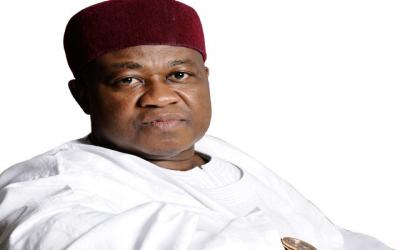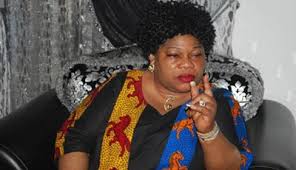How Will History Remember Okonjo-Iweala?
By Undung Pam
History, they say, is subjective. It takes on the life of whoever is writing it. But there are some events that will always be viewed from the standpoint of objectivity, no matter the attempt at changing it.
As President Goodluck Jonathan’s administration goes off the stage, there are attempts by numerous activists and emergency historians trying hard to rewrite the economic history of this country. This is history that is still very much fresh. It is known to us; it happened before our very eyes.
The economic exploit of Dr Ngozi Okonjo-Iweala was not done in the stone age; it was done in the era of Google. So, no matter what anyone will make us believe, history cannot be rewritten to fit someone else’s prejudice. We know that despite what critics will say, Okonjo-Iweala has revamped the Nigerian economy with her laudable reforms.
The rebasing exercise which positioned Nigeria as the strongest economy in Africa is one event we should not quickly forget. Prior to this, no one realised the full extent of the potential of the Nigerian economy. It takes a competent economic management team, like the one headed by Dr Ngozi Okonjo-Iweala, to grow the Nigerian economy from a weak one to a strong one where investors are constantly pouring in to partake of its boom.
Prior to the administration of Obasanjo in 1999, Nigerian economy was lagging behind; human development indicators were below average compared to other developing countries. The country’s revenue was largely dependent on oil exports and fiscal spendings were high, making the economy very volatile. Investors were also discouraged by the unfriendly business climate. The country solely relied on oil exports as a means of generating revenue. Unemployment rate was high while inflation was in double digits. The inflation rate was 10.4%, in 2003 it went up to 21.8%. The per capita income was below $300.
However, with the economic team of Okonjo-Iweala, the challenges were being handled gradually. In 2003, the government embarked on a comprehensive economic reform through the National Economic Empowerment and Development Strategy (NEEDS). NEEDS, managed by Okonjo-Iweala and her team, focused on macroeconomic, structural, public sector, institutional and governance reform. A major one was the diversification of the economy and the improvement of the general business climate.
Can history forget the debt pardon of 2006? We shall remember how Madam Okonjo-Iweala was instrumental to securing debt pardon for Nigeria from the Paris Club; World Bank and IMF. Thanks to Okonjo-Iweala and her economic team, they came to the rescue and after much negotiation we heaved a sigh of relief when that burden was lifted.
We shall not forget the Excess Crude Account (ECA), the brainchild of Okonjo-Iweala. The Finance Minister, being a woman of foresight and prudence, built that account as savings for the rainy day. and the rainy days came indeed and the nation had to draw from those reserves during the critical times. Our foreign reserves have been buffered unlike when it was in the red in the past. We need to give credit to Okonjo-Iweala for managing the economy well despite the present challenge the nation is experiencing. The downslide of the crude oil price is one incident that is shaking even stronger economies. However, the situation is being well managed under the competent hands of Okonjo-Iweala; it takes both wisdom and tact to be able to handle or deal with this kind of situation.
I recall the incidence of the ghost workers in civil service; Okonjo-Iweala came and by upgrading the payment system to one run electronically, these non-existent workers were uncovered saving the nation billions of naira.
During the tenure of Okonjo-Iweala as Finance Minister; from the days of Obasanjo to this present administration, the country has witnessed economic progress on all fronts. More jobs have been created with the development of new sectors of the economy like telecommunications, services and the creative arts industry. These are landmark achievements that cannot be quickly forgotten. With the creation of the mortgage scheme, more Nigerians have been empowered to own their homes.
The international society has never failed to recognise and acknowledge Okonjo-Iweala’s efforts, this is shown in the way she keeps receiving awards on international platforms. Nigerians can testify that generally, the standard of living for an average person has risen, unemployment has reduced significantly. Of course things can be better and there is ample room for improvement, but the country has moved forward tremendously. To deny this is to deny the obvious.
For sure, history will be kind to Dr Ngozi Okonjo-Iweala!
Undung Pam is a social commentator contributing from Jos, Plateau State.




